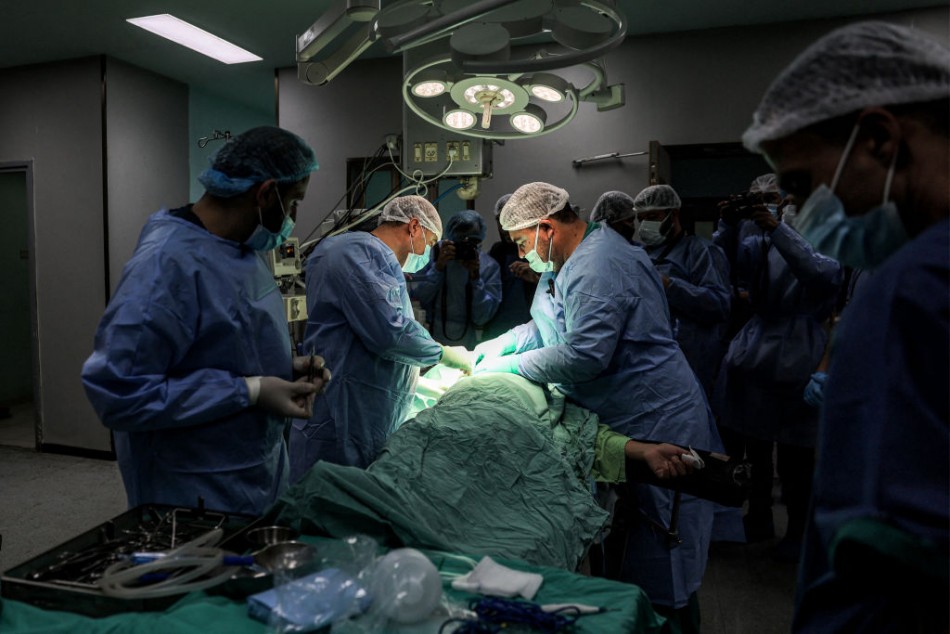First Person to Receive Kidney Transplant from Genetically Modified Pig Dies 2 Months After Surgery

The first beneficiary of a kidney transplant from a genetically engineered pig has died nearly two months after the procedure, as verified by his family and the hospital where the surgery took place.
Richard "Rick" Slayman, aged 62, underwent the surgery for kidney transplant from a pig at Massachusetts General Hospital in March.
Pig Kidney Transplant Recipient Dies Two Months After Surgery
Despite surgeons' expectations that the pig kidney would function for at least two years, Slayman succumbed to unknown causes.
Massachusetts General Hospital's transplant team expressed deep sorrow over Slayman's death and extended condolences to his loved ones. They clarified that there were no signs indicating that the transplant directly led to his passing.
Slayman, a resident of Weymouth, Massachusetts, made medical history as the first living individual to undergo this type of transplant, which had previously only been performed on brain-dead donors.
While two persons had gotten heart transplants from pigs, both had unluckily died within months.
Slayman had formerly gotten a kidney transplant in 2018 but returned to dialysis the following year due to signs of kidney failure. When complications from dialysis necessitated frequent procedures, his medical team proposed a pig kidney transplant as an alternative.
In a statement, Slayman's family expressed gratitude to his medical team, acknowledging their tireless efforts in facilitating the xenotransplant procedure, which provided seven additional weeks for Rick's life. They emphasized his decision to undergo the procedure as a beacon of hope for the countless persons pending transplants, highlighting that his certainty and legacy will endure.
Xenotransplantation involves utilizing cells, tissues, or organs from animals to treat human patients. Historically, such efforts were overpowered by the rapid refusal of foreign animal tissue by the human immune system.
However, current progress, including the modification of pig organs to look like human tissue more closely, has shown promise in overcoming these difficulties.
Despite this progress, the demand for transplants remains high, with over 100,000 persons on the national waiting list, mostly for kidney transplants, and many die due to their conditions before getting an appropriate organ.
Read Also: Partial-Heart Transplant Leads to Infant's Remarkable One-Year Recovery Success
First Person To Receive Kidney Transplant from Pig
After being released from the hospital, the first beneficiary of a successful kidney transplant from a pig conveyed immense joy, deeming the moment as one of the happiest in his life and a fresh start.
Richard "Rick" Slayman, living in Weymouth, Massachusetts, left the hospital on April 3, less than three weeks after undergoing a groundbreaking procedure on March 16 at Massachusetts General Hospital in Boston. This marked the first instance of a human surviving with an organ from another species.
Slayman, a systems manager for the Massachusetts Department of Transportation, conveyed gratitude to the hospital staff and doctors for their unwavering support throughout his treatment and the procedure, making the experience seamless.
The surgery, conducted amid a high demand for organ transplants, signifies a pivotal moment in medical history due to its success. Surgeon Tatsuo Kawai remarked on the immediate functionality of the pig kidney, highlighting the rapid production of urine, a visually striking indicator of the organ's efficacy.
The pig, sourced from an undisclosed Midwestern farm, generously donated its life and kidney for Slayman's transplant. This endeavor was facilitated by eGenesis, a biotech company specializing in breeding and raising gene-edited pigs for transplantation purposes.
Slayman's medical history, including 30 years of type 2 diabetes and seven years of dialysis before his first kidney transplant in 2018, underscores the necessity of the procedure. Despite efforts to maintain dialysis, complications arose, prompting consideration for the pig transplant as a viable solution.
Slayman's decision to undergo the surgery was driven by limited medical options and a desire to inspire hope for others awaiting transplants.
Related Article: Artificial Womb Test on Pregnant Pig May Help Save Human Premature Babies in the Future
© 2024 ParentHerald.com All rights reserved. Do not reproduce without permission.
